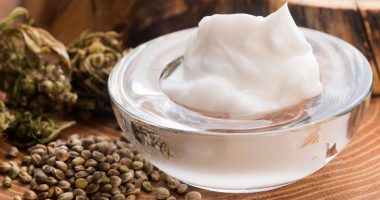- Cardiol Therapeutics’ (CRDL) study results found protective effects of CardiolRx in a model of acute pericarditis
- The company’s Phase II pilot study in recurrent pericarditis is expected to enroll 25 patients at major clinical centers in the United States specializing in pericarditis
- The company’s Phase II pilot study in recurrent pericarditis is expected to enroll 25 patients at major clinical centers
- The primary efficacy endpoint is the change, from baseline to eight weeks, in patient-reported pericarditis pain using an 11-point numeric rating scale
- While the secondary endpoints include the pain score after 26 weeks of treatment and changes in circulating levels of C-reactive protein
- Cardiol Therapeutics (CRDL) is trading at C$0.77 at 1:56 pm EST
Cardiol (CRDL) found that the active pharmaceutical ingredient in CardiolRX reduces pericardial effusion and thickening in a pre-clinical model of acute pericarditis.
In addition, the company found that the drug significantly suppresses the secretion of vital inflammatory markers interleukin-1β and interleukin-6 in vitro.
Cardiol’s research collaborators presented this data from Virginia Commonwealth University at The American Heart Association Scientific Sessions 2022.
The company released the news on November 5, 2022, and the poster entitled “Protective Effects of Pharmaceutically Manufactured Cannabidiol in a Mouse Model of Acute Pericarditis.”
Cardiol filed a patent application with the U.S. office regarding new findings.
NLRP3 is a sensor protein that comprises a part of the NLRP3 inflammasome, a large multiprotein complex that regulates inflammatory responses of the innate immune system.
“The data presented at the AHA2022 by our research collaborators from VCU provides additional rationale for our recent decision to prioritize our Phase II pilot study in patients with recurrent pericarditis and offers new insight into the molecular targets and mechanism of action of CardiolRx,” said Dr. Andrew Hamer, Cardiol Therapeutics’ Chief Medical Officer and Head of Research & Development.
Recurrent pericarditis is inflammation of the pericardium (the membrane or sac surrounding the heart) that follows an initial episode/infection. Patients may have multiple recurrences.
“It is recognized that pericarditis is associated with aberrant inflammasome activation, an intracellular process leading to the release of pro-inflammatory cytokines, including IL-1β. The results presented over the weekend provide evidence that CardiolRx™ inhibits activation of the inflammasome pathway and other associated pro-inflammatory pathways,” added Dr. Hamer.
The company’s Phase II pilot study in recurrent pericarditis is expected to enroll 25 patients at major clinical centers in the United States specializing in pericarditis.
The protocol has been designed in collaboration with thought leaders in pericardial disease.
The primary efficacy endpoint is the change in patient-reported pericarditis pain from baseline to eight weeks using an 11-point numeric rating scale (NRS).
The NRS is a validated clinical tool employed across multiple conditions with acute and chronic pain, including previous studies of recurrent pericarditis.
While the secondary endpoints include the pain score after 26 weeks of treatment and changes in circulating levels of C-reactive protein, a clinical marker of inflammation in the body.
Cardiol Therapeutics is a clinical-stage life sciences company focused on anti-inflammatory and anti-fibrotic therapies for the treatment of heart diseases.
Cardiol Therapeutics (CRDL) is trading at C$0.77 at 1:56 pm EST.





